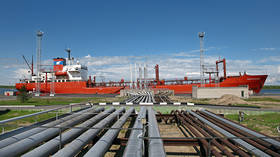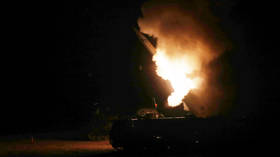Moscow has potential new buyers for half of its oil – Bloomberg

Moscow will be able to find new markets for half of the crude oil exports subject to Brussel’s looming embargo, Bloomberg reported on Friday, citing analytics company Kpler.
Under the embargo, most imports of Russian crude will be banned from entering the EU starting in December, while oil product exports to the bloc will be banned starting in February. According to the International Energy Agency, this means that about 2 million barrels of Russian oil a day will be left unclaimed, unless Russia redirects their delivery.
According to Kpler, however, Indonesia, Pakistan, Brazil, South Africa, Sri Lanka, and a number of Middle Eastern countries could together buy up to 1 million barrels of Russian crude a day this coming winter.
Moscow has already started redirecting some of its oil to Asia, boosting exports to India and China, after some European buyers rejected further deliveries. Russia has offered large discounts to attract buyers.
Analysts say the discount may prove tempting, and the Middle East, which could take as much as 500,000 barrels per day of Russian crude, could even decide to redirect the oil previously used domestically to export markets.
Earlier, reports emerged that Indonesia is considering buying Russian oil at a 30% discount, but is waiting to see if China and India agree to join the price cap initiative pitched by the Group of Seven (G7) in order to curb Russia’s profits from oil exports.
For more stories on economy & finance visit RT's business section












